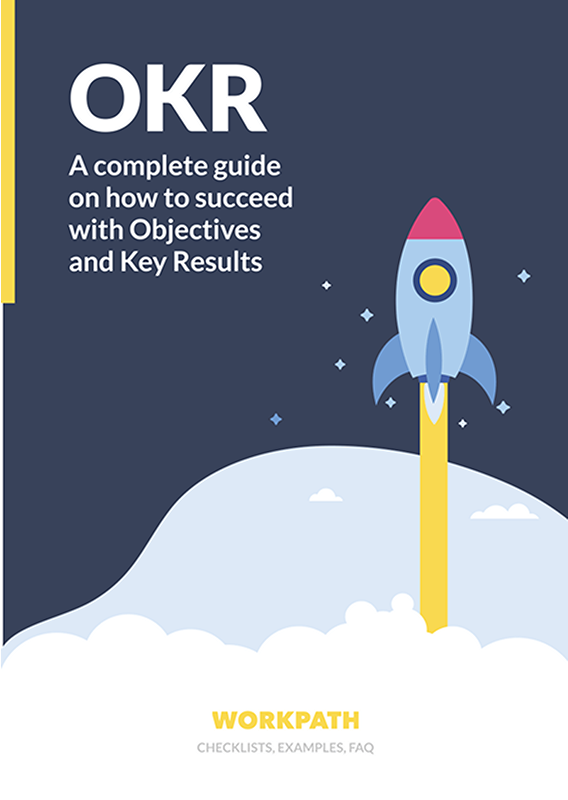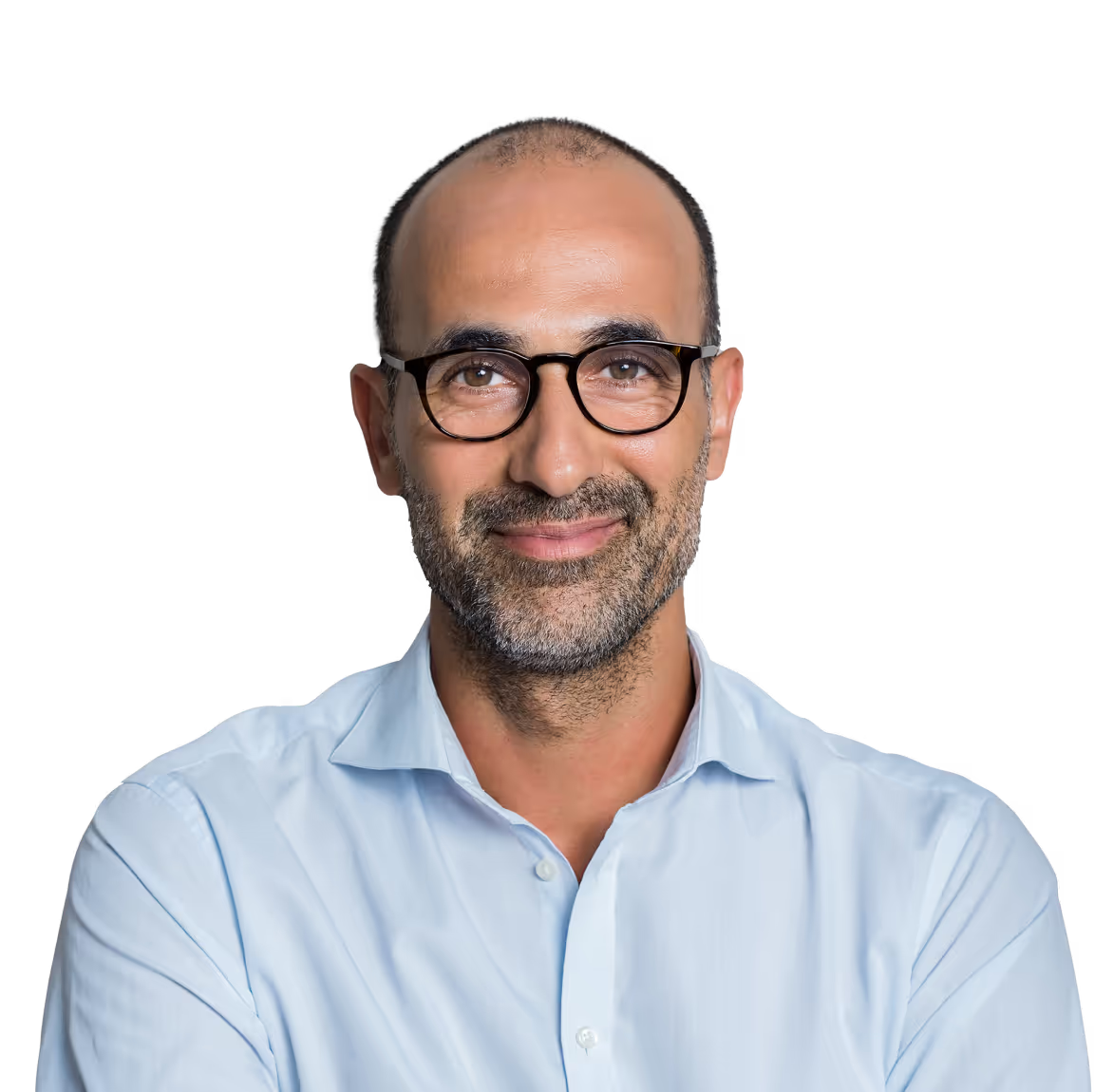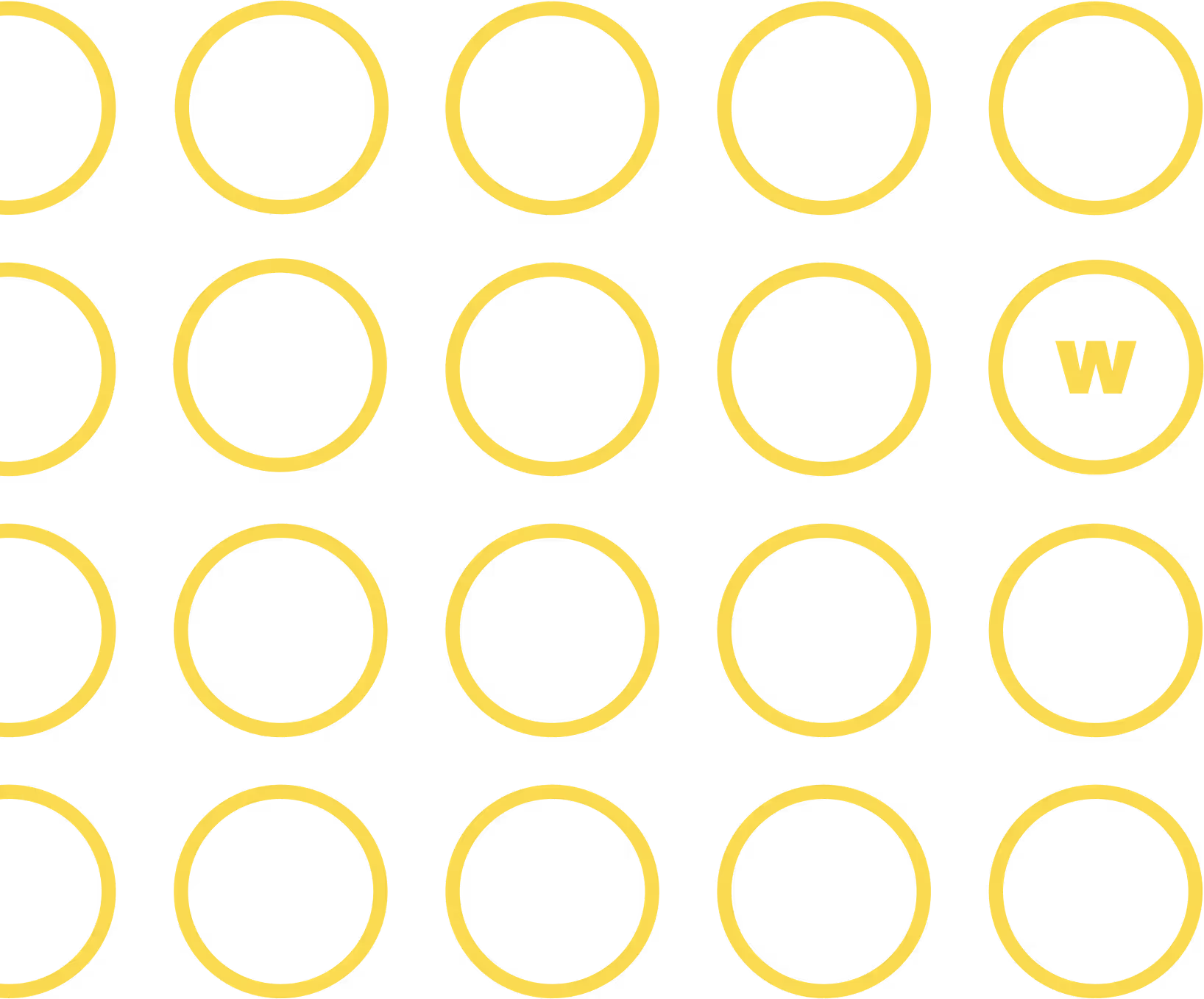In 2015, HolidayCheck was facing a lack of operational focus in a highly competitive market. In need for a structured process, the organization had implemented a traditional performance management system with individual employee objectives, annual reviews and variable incentives several years before.
Acknowledging the missing impact of the system on the actual company performance, the leadership team decided to establish a new process that could not just measurably drive performance but also transform the company into a more agile organization of self-organized teams. Objectives and Key Results soon were identified as a promising framework to tackle these particular business challenges. After extensive conversations with other OKR practitioners and industry leaders, the company’s executive team was confident they could utilize the OKR framework as a transformation tool and as an operating system for a more agile collaboration. The introduction of the agile goal management system was then mainly driven by HolidayCheck’s IT and HR departments. After an initial workshop with a specialized consultancy, the management team was ready to kick off the first OKR cycle.
If you want to know more about the OKR framework, take a look at our article "Objectives and Key Results (OKR) - A Definition"
Several factors contributed to HolidayCheck’s success with OKRs. Besides the input from experienced practitioners and OKR experts, expectation management and employee engagement turned out to be key. The leadership team acknowledged and communicated that the implementation of OKRs would take some time, coming with a certain degree of uncertainty and the need for continuous adaptation. As various stakeholders from the most important departments were driving the process, recognizing the benefits and the company’s ambition, employee buy-in on a broad scale could be ensured. OKRs enabled a significant reduction of ineffective parallel goal setting while strengthening focus and alignment. Furthermore, the system increased transparency and measurability of business value created instead of focusing just on milestones. Also, HolidayCheck’s agility has been significantly increased as the OKR system does not define tasks or initiatives, but measurable results the company is aspiring to achieve. Another aspect that was key for HolidayCheck’s success was the process design of their OKR Cycle.
The OKR Cycle at HolidayCheck


Until three weeks before a new cycle starts, the executive team works on a guiding set of top company priorities for the next quarter. Depending on the situation, these priorities can either be just giving rough directions or come as a set of more detailed OKR drafts already. They are then publicly shared with all people of the organization.
All teams now discuss their own priorities and how they can contribute to the guiding company goals. Accordingly, they draft their OKRs and assign owners. Ownership and team constellations derive from the skills and resources needed to achieve an OKR.

OKR Workshop 1: All OKR owners, OKR masters, the executive team and the owners of company initiatives and metrics (every important metric has a particular HolidayCheck manager responsible for it) meet to screen, appraise, connect and assign the OKR drafts. One important factor of this session is to limit the Objectives a single employee is working on to one, if possible.Knowing the scope and the assignment of OKRs, the teams now develop their pre-final Objectives and Key Results based on the previous workshop.

OKR Workshop 2: The participants of OKR Workshop 1 meet again to assess and refine the pre-final OKRs. The executive team then decides on the final OKR set. Finally, the OKR owners and the executive team present the final OKRs to the entire organization during the official OKR kick-off event.

Review and Grading: OKR progress and achievements of the previous quarter are finally documented and assessed. The results of this review meeting are presented at the next company event.

Retrospective 1: The teams discuss how to improve collaboration and the process around OKRs. This conversation focuses on the gaps between OKR planning and achievement in order to develop as a company.

Retrospective 2: Similarly to the first retrospective, the teams again meet to improve the OKR process. More precisely, HolidayCheck’s teams try to carve out what to start, stop and continue doing. As the session happens already three weeks before the next OKR kick-off, this conversation focuses on learnings for the plannings of the next cycle.
Check-ins: HolidayCheck’s meeting rhythm with OKRs
Every two weeks, all OKR owners and the executive team meet to assess progress and to estimate the probability of achieving current OKRs. The Check-in meeting always begins with a conversation about significant changes of confidence levels and progress. OKR owners are able to explain the latest updates while assumptions from the planning workshops are being regularly reviewed. If necessary, topics can be escalated and solutions are being discussed in the group. In these cases, resources sometimes are reallocated in order to save certain Objectives or stop initiatives that turned out to be unsuccessful.
Preparation: For a successful Check-in it is crucial that OKR stakeholders update progress and confidence levels before the meeting. Hence, Check-ins are also an important tool to ensure data quality and accountability.
Planning Work: OKR Check-ins are also used to connect tasks and initiatives with current strategic goals (OKRs) on a regular basis. The teams reflect how to plan their work in order to contribute to the achievement of goals. That way also a sense of purpose and context can be strengthened on a regular basis.Over several cycles with Check-ins, HolidayCheck was able to make their meetings significantly more efficient, result-oriented and data-driven. This has saved meeting participants up to 50% of their time on average. Similar sessions are held within every team as part of jour-fixes or scrum meetings.
How OKRs helped transforming HolidayCheck into an agile organization with more focused and autonomous teams
After several cycles, the OKR system also induced a transformation of organizational structures at HolidayCheck. The increased level of transparency helped breaking up silos and fostering a company-wide discussion and alignment of priorities. As goals are transparently developed and screened, the allocation of people and resources can be better negotiated, and metrics and ownership can be clearly assigned. That way it is also easier to identify resource and skill needs or shortages which in turn enables a more efficient and focused planning.Over time this led to a shared backlog of goals across the entire organization and so-called super teams (interdisciplinary teams of individuals and teams that need no other stakeholders to achieve their OKR) that dynamically form and collaborate around shared goals and priorities.
This development has been crucial as it separates the value creation structure (the OKR teams) from the formal structures (the line management) so it has less influence on goal setting, resource allocation and the actual work. That way HolidayCheck was able to improve alignment, agility and focus, decreasing the average number of OKRs from 170 to less than 20 per cycle.

Lessons learned: HolidayCheck’s tips for OKR beginners
- Promote OKRs: Talking about strategies, goals, or work initiatives, the leadership team should always refer to company OKRs. Particularly when talking about products or services, referring back to OKRs ensures that the conversation does not focus on features, but on customer value.
- Work with OKR Champs (aka OKR Masters): HolidayCheck’s OKR Champs support OKR owners and their colleagues in succeeding with OKRs. They are volunteers, distributed across the organization, who act as support centers, coaches, process guards and facilitators.
- Establish confidence levels for better communications: Weekly updated and reviewed confidence levels (an estimate of OKR stakeholders if a goal still can be achieved) continuously help assessing the current company status and become an important metric for project success.
- Clearly communicate responsibilities: For an effectively run process it is important that every employee understands their role in the process and what is expected from them in every phase.
- Actively share OKR knowledge and updates: Broadcast changes of the process company- wide and instruct your leadership team accordingly. If team leads cannot update their team and answer questions, people quickly feel left behind and engagement decreases.In addition, HolidayCheck sends out invites for OKR office hours where OKR Champs are available for questions.
- Do not connect incentives with short term goals: Before implementing OKRs, HolidayCheck banned all individual incentive programs. Instead, the organization started developing a new performance and feedback system that focuses on more influenceable factors of employee productivity and development.
- Try not to micromanage with OKRs: There should be no tasks lists or product features in the OKR system, only goals that refer to customer and business value. OKRs are designed to enable effective autonomous work, not to delegate or control teams.
- Understand the purpose of transparency: Transparency is key for successful collaboration across functional silos. Misusing this to increase control harms the development of trust.
- Expect failure and embrace challenges: OKRs help companies to transform into more agile organization that thrive in increasingly complex environments. This demands continuous development and iterations, which can be challenging from time to time. Also, it takes at least 1.5 years until an organization fully adopts the system and it becomes a natural communication layer.
- Train colleagues adequately: HolidayCheck developed their employee trainings according to prior experiences with OKRs. People without any OKR experiences participate in an extended onboarding training where OKRs examples and the basic principles of agile collaboration are explained. More experienced colleagues receive a brief presentation of HolidayCheck’s current OKRs in order to quickly start working with the framework. In addition, the company offers regular FAQ sessions and a wiki to answer questions that come up in the process.
- Find your own way: OKR is an open source system and not just one standard process that works best for everyone. Much more, it is a proven starting point with an advanced set of best practices, so every organization can develop and adapt their own approach.





